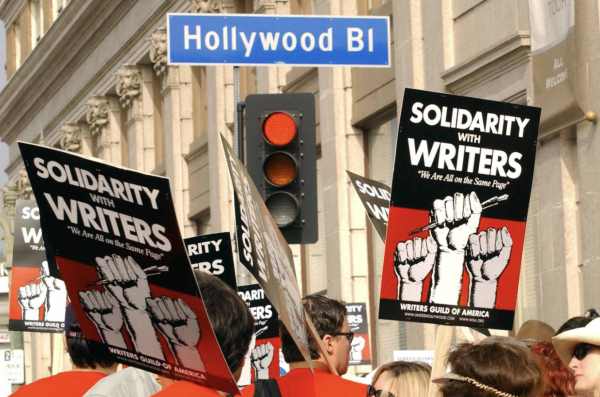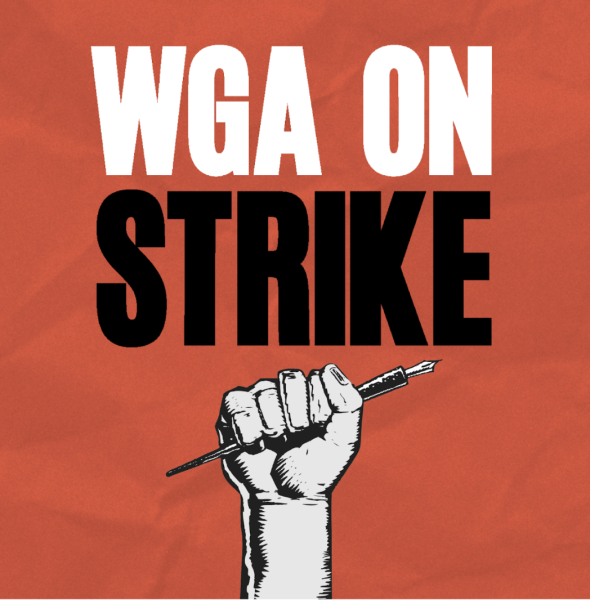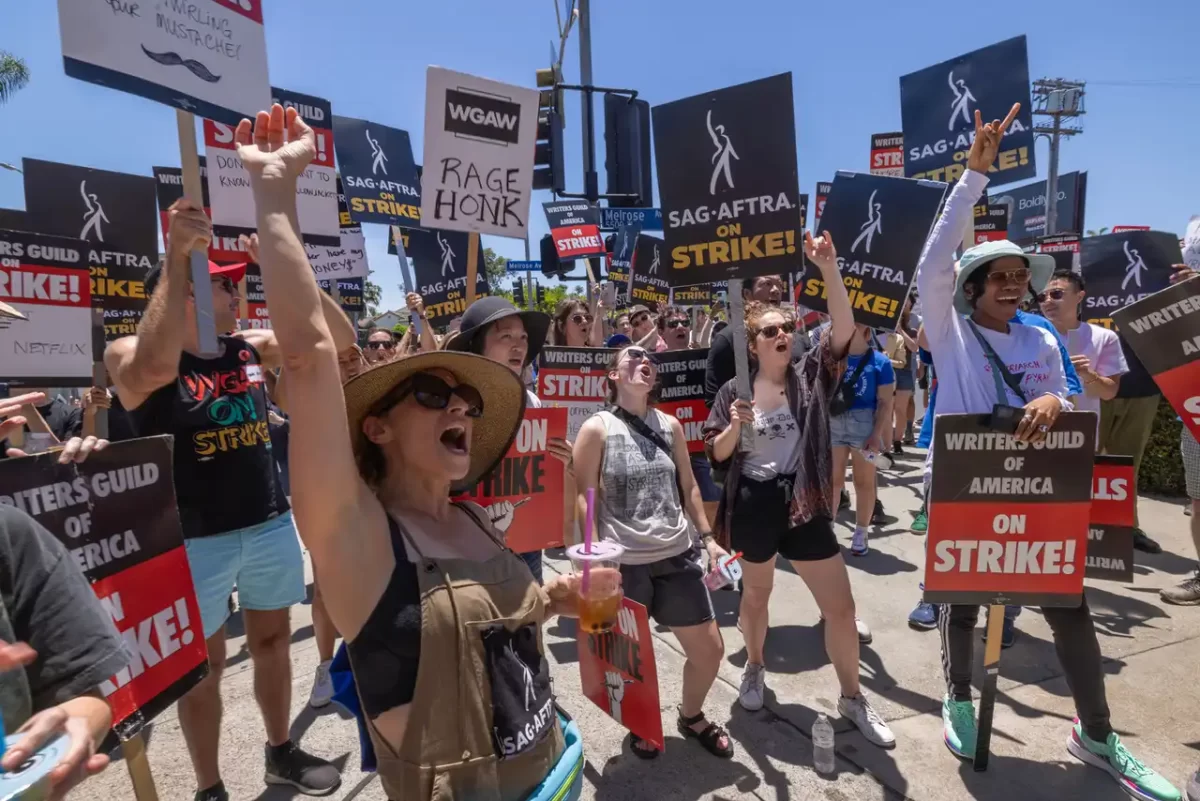After a gruesome 146-day strike – the second longest in Hollywood history – The Writers Guild of America (WGA) and the Alliance of Motion Picture of Television Producers (AMPTP) came to a resolution. One of the main points of the strike was the residuals earned by writers. Because of the increasing use of streaming services, writers have earned lower and lower residuals. Another issue very important to the writers is the use of Artificial Intelligence (AI). With the developing technology of AI, writers want to be assured that it will not take their place as screenwriters.

After months of contention, the first written counter made by the AMPTP on August 11, 2023, went public on August 22, 2023. Its purpose was to entice writers with significant increases in the writer’s wages; instead, the WGA saw it as an attempt to divide the writers, failing to give them what they really wanted: protection. For example, this offer included a total of three writers including the showrunner for the writer’s room, which was nothing compared to the writer’s demand for at least six writers per room. Concerning AI, the offer specified that it would not be considered “a person,” but it did not state some of the other protections the WGA asked for. In the guilds’ response to the counter, they stated that “the companies” counteroffer is neither nothing, nor nearly enough”, and they would continue to advocate for an offer that fully addresses their concerns.

Finally, ending the almost five-month-long strike, the WGA and AMPTP reached an agreement on a new contract that the guild members would vote to accept soon after. According to the WGA summary, the union strike was successful in its efforts, exclaiming “We can say, with great pride, that this deal is exceptional – with meaningful gains and protections for writers in every sector of the membership.” The deal includes increased minimum wage and compensation, improvements to the size of writing teams, better residuals including foreign streaming schedules, and more improvements to writers’ work environments. In terms of AI, the contract does not prohibit the use of AI but does prohibit eliminating writer’s jobs or lowering their pay because of it. Overall, while the studio’s tactics originally insulted and angered the WGA, both sides of the debate have come to a resolution to which the writers are willing to agree.



